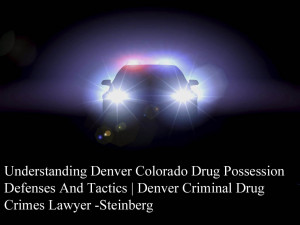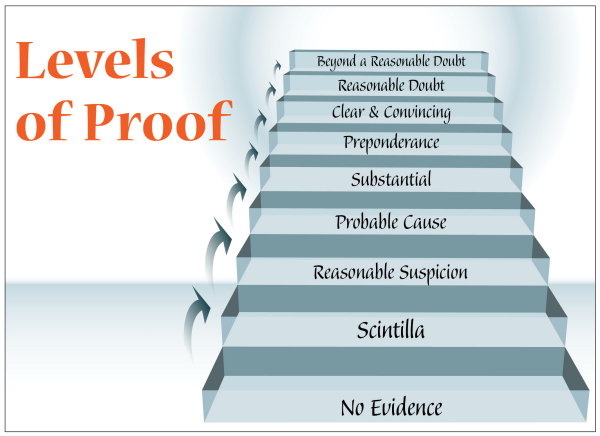




Understanding Denver Colorado Drug Possession Defenses And Tactics | Denver Criminal Drug Crimes Lawyer -Steinberg
By H. Michael Steinberg- Colorado Drug Crimes Criminal Defense Lawyer – Email the Author at [email protected]
U nderstanding Denver Colorado Drug Possession Defenses And Tactics | Denver Criminal Drug Crimes Lawyer -Steinberg – means understanding many of the issues that consistently surround defending these cases. This article is intended to help the reader understand some of the more basic issues that emerge in and from drug crimes cases.
nderstanding Denver Colorado Drug Possession Defenses And Tactics | Denver Criminal Drug Crimes Lawyer -Steinberg – means understanding many of the issues that consistently surround defending these cases. This article is intended to help the reader understand some of the more basic issues that emerge in and from drug crimes cases.
Denver Colorado Drug Possession Cases Can Be Complex
Every fact pattern in every Colorado drug possession case provides another opportunity to for an experienced drug possession defense attorney to uncover and then analyze the unique story, the specific situation and circumstances of that case.
The analysis of each of these cases requires a consistent and well reasoned approach of the same legal issues that typically present in the vast majority of drug possession accusations.
Analysis Of Typical Denver Colorado Drug – Controlled Substance Case Issues
First – Was the Stop Of The Vehicle and Detention Of The Occupants Legally Permissible?
When you are in motion – either walking or driving in your car – if a police officer restricts your movements – stops your progress – that is called “detaining you.” A traffic stop or the stopping your movement on the street is considered a restriction of your freedom under the 4th Amendment and must be supported by evidence that you may be involved somehow in the commission of a crime.
Before the police have the constitutional right to restrict your movement – they must have specific facts which can be “articulated” (described) if later questioned in court. A police officer must be able to describe to a judge facts that give rise to a level of “reasonable suspicion” to believe that you have committed a crime or have evidence of a crime.
“Reasonable suspicion” is the lowest burden of proof under Colorado criminal law. While requiring some justification, it isn’t considered a large quantum of evidence.
Or… They Must Have Exigent Circumstances
Exigent circumstances include the “emergency aid exception” to the arrest and search warrant requirement.
To legally justify a “stop” under the Exigent Circumstances Exception – the government agents involved must provide each of the following elements:
(1) The police officer subjectively believed that someone likely needed assistance for health or safety concerns;
(2) A reasonable person in the same situation would similarly believe that there was need for assistance;
(3) There was a reasonable basis to associate the need for assistance with the place being searched;
(4) There is an imminent threat of substantial injury to persons or property;
(5) The agents must believe a specific person or persons or property are in need of immediate help for health or safety reasons; and
(6) The claimed emergency is not a mere pretext for an evidentiary search.
If the police approach your car to “help you” it cannot be a pretext to intrude on your life for the purposes of a suspicion you may be involved in a crime.
The Traffic Offense As A Basis For Stopping Your Vehicle
Nearly all drug possession cases involve the Colorado criminal defense lawyer attacking the legal basis for a police officer’s reasonable suspicion to pull over your vehicle.
- Was there really a traffic offense?
- Were the officer’s actions in stopping your car “objectively reasonable?”
- Were You Illegally Detained (Held Against Your Will Or In Custody)?
If law enforcement detains you – that is restricts your freedom in any significant way – you may have been illegally detained. Your constitutional rights under the 4th Amendment requires that any detention – if it is a legal detention – it can only be long enough to resolve the initial reason for which you were pulled over or otherwise stopped. The police may identify you, check for warrants, and also check the status of your driver’s license. But if the stop was based on a traffic infraction – it cannot be used as a “pretext” to investigate another crime for which the police have no evidence.
Continued Detention?
If the police detain you beyond the time necessary to process a traffic infraction – they must uncover other “reasonable suspicion” – such as that of a new crime. To repeat – if the police pull your car over for a minor traffic offense, for example failing to signal a turn or to stop at a stop sign, the detention must be “reasonable” to the crime under investigation – if it is a pretext for the investigation of a crime unrelated to the stop – the evidence seized should later be suppressed in court.
Colorado Dog Sniff Searches In Drug Possession Cases
Today – with the passage of Colorado’s 2014 Recreational Marijuana laws – the police who may more frequently smell “burned” marijuana may attempt to use that as a springboard to searching your vehicle for what they think may be illegal drugs. Under these circumstances they may call a so called “drug sniffing dog” to the scene of the stop.
In the recent (2012) Colorado case of People v. Heather L. Esparza, the Colorado Supreme Court reaffirmed the decision of People v. Redinger, 906 P.2d 81, 85-86 (Colo. 1995) that held that the requirement of reasonable suspicion to prolong any traffic stop beyond its original purpose can invalidate the drug sniff search and that a dog sniff could be suppressed as the product of an unlawfully prolonged vehicle detention…
In Colorado – in what is called a motion to suppress evidence – if it is established that – (based on the specific facts of the case) – you were unlawfully detained – that your detention lasted on unreasonable length of time – the evidence seized as a result of that unlawful detention may be suppressed and not used against you at your trial.
Was The Drug Sniffing Dog Adequately Trained?
Before drug sniffing dog evidence can be admitted – the police must:
-
have a validly trained dog that is truly capable of detecting drugs,
-
the dog must be deployed in the proper manner,
-
the police must not signal or otherwise influence the dog to alert but instead let the dog alert based on odor and training,
-
the dog must actually give the alert on the vehicle in question.
For more information on Colorado Drug Sniffing Dogs – please follow this link to another article I have written in this area. All facts should be analyzed with a view to careful analysis the particular facts and circumstances of your case.
Did The Colorado Police Have “Probable Cause” to Search of You Or Your Vehicle ?
Under the Fourth Amendment to the Colorado and United States Constitution – law enforcement must have “probable cause” to lawfully search your car based on evidence that there exists illegal items – controlled substances are in your vehicle at that precise moment in time.
“Probable cause” must be “fresh.” That is – the evidence must be recently obtained so that the search tied to the evidence the police believe they will find will still reasonably be in your vehicle at the time of the proposed search. On the other hand – if the police do have probable cause – Colorado law permits them to search anywhere in the vehicle that such items or evidence may be kept. This includes the trunk and locked compartments.
A police officer who has probable cause to believe there are drugs in the vehicle -because of the often tiny nature of controlled substances – are most often legally justified in searching every square inch of your automobile.
Challenging The Lab Tests Of Alleged Controlled Substances
While often overlooked as a possible line of defense – closely examining the results of the lab test and the qualifications of the technician analyzing the alleged controlled substances – is very important.
-
Some areas of analysis in this area:
-
The education, experience, and qualifications of the Colorado police lab technician,
-
The specific age and condition of the tools uses in the analysis,
-
The schedule of maintenance and calibration of the equipment used.
-
The “margin of error” in the testing techniques for each machine used.
-
The basis of the science underlying the technique.
-
If the science is acceptable – the application of the techniques to the alleged controlled substances in this case.
-
The validity of the process used and the final results obtained.
Understanding Denver Colorado Drug Possession Defenses And Tactics | Denver Criminal Drug Crimes Lawyer -Steinberg
ABOUT THE AUTHOR: H. Michael Steinberg – Email The Author – A Denver Colorado Drug Crimes Criminal Defense Lawyer – or call his office at 303-627-7777 during business hours – or call his cell if you cannot wait and need his immediate assistance – 720-220-2277.
If you are charged with A Colorado crime or you have questions about the topic of this article – Understanding Denver Colorado Drug Possession Defenses And Tactics | Denver Criminal Drug Crimes Lawyer -Steinberg, please call our office. The Law Offices of H. Michael Steinberg, in Denver, Colorado, provide criminal defense clients with effective, efficient, intelligent and strong legal advocacy. We can educate you and help you navigate the stressful and complex legal process related to your criminal defense issue.
 H. Michael Steinberg, is a Denver, Colorado criminal defense lawyer with over 40 years of day to day courtroom experience – specializing in Colorado Criminal Law along the Front Range. He will provide you with a free initial case consultation to evaluate your legal issues and to answer your questions with an honest assessment of your options. Remember, it costs NOTHING to discuss your case. Call now for an immediate free phone consultation.
H. Michael Steinberg, is a Denver, Colorado criminal defense lawyer with over 40 years of day to day courtroom experience – specializing in Colorado Criminal Law along the Front Range. He will provide you with a free initial case consultation to evaluate your legal issues and to answer your questions with an honest assessment of your options. Remember, it costs NOTHING to discuss your case. Call now for an immediate free phone consultation.
Helping Clients To Make Informed Decisions In the Defense of Colorado Criminal Cases.
Contact A Lawyer with Three Decades of Experience as a Denver Criminal Attorney at The Steinberg Colorado Criminal Defense Law Firm today.
Colorado Defense Lawyer H. Michael Steinberg provides solid criminal defense for clients throughout the Front Range of Colorado – including the City and County courts of Adams County, Arapahoe County, City and County of Boulder, City and County of Broomfield, City and County of Denver, Douglas County, El Paso County – Colorado Springs, Gilpin County, Jefferson County, Larimer County, and Weld County,…. and all the other cities and counties of Colorado along the I-25 Corridor… on cases involving the topic of this article – Understanding Denver Colorado Drug Possession Defenses And Tactics | Denver Criminal Drug Crimes Lawyer -Steinberg.
Other Articles of Interest:
- Colorado Criminal Drug Cases – Law and Tactics
- The Defense Of Colorado Drug Crimes Cases – Questions Your Colorado Drug Crimes Defense Lawyer Should Be Asking…
- Comprehensive List Of Colorado Drug Crimes – Offenses
- FAQ – Colorado Criminal Drug Crimes Laws and Defenses – The Defense of Voluntary Intoxication in Colorado
- An Overview of The Defense Of Colorado Drug Crime Charges













